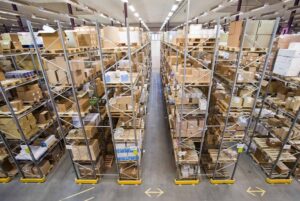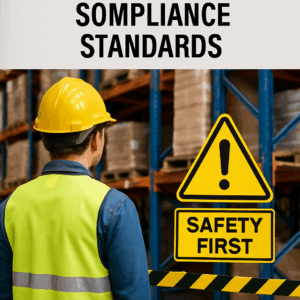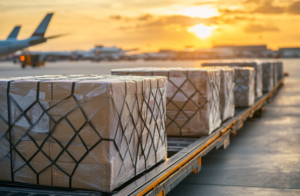This comprehensive guide will dive deep into how to choose the right customs brokerage services for your business, unraveling essential considerations, actionable tips, and real-world insights to help you make an informed decision.
Understanding the Role of Customs Brokerage Services
What Do Customs Brokers Do?
Customs brokerage services act as the vital link between shippers and the government departments that regulate imports and exports. These services are designed to manage the paperwork, legal compliance, and logistical hurdles associated with importing or exporting goods. Key responsibilities of customs brokers include:
- Preparing and submitting customs documentation.
- Ensuring adherence to national and international trade regulations.
- Calculating and paying duties and taxes on your behalf.
- Facilitating fast customs clearance to avoid delays.
- Helping mitigate risks related to regulatory audits and penalties.
For small businesses, where resources are often limited and missteps can have severe consequences, the expertise of a skilled customs broker can be a game-changer.
Key Factors to Consider When Choosing Customs Brokerage Services
1. Expertise in Customs Clearing Services
Not all customs brokers are created equal, and expertise matters significantly when navigating the nuances of customs procedures. Investigate the broker’s experience in handling shipments similar to yours—whether that’s importing electronics, apparel, pharmaceuticals, or other goods.
Signs of Expertise:
- Industry-Specific Knowledge: For example, if you are importing pharmaceutical products, your broker should understand FDA requirements, labeling rules, and other specialized regulations.
- Global Reach: A customs broker with a strong global network can make it easier to move goods across multiple countries seamlessly.
Example:
Consider a small apparel business importing textiles from Asia. Choosing a customs broker experienced in managing import quotas and the textile trade agreement can mean fewer shipment delays and reduced tariff costs.
2. Transparency in Customs Broker Fees
Customs broker fees can vary widely depending on the level of service, shipment complexity, and geographic regions involved. Many business owners are caught off guard by hidden costs such as additional charges for documentation, storage, or expedited services.
Key Questions to Ask About Fees:
- Is their fee a flat rate or percentage of the shipment value?
- Are there additional charges for import customs clearance?
- Do they charge extra for after-hours services or urgent shipments?
- What is their policy on unexpected charges?
Tip:
Avoid brokers who are vague about their pricing structure. Instead, choose one who provides detailed, itemized cost breakdowns upfront.
3. Proven Track Record with Import Customs Clearance
The cornerstone of any efficient customs brokerage service lies in how well they handle import customs clearance. A delay in clearance can lead to missed deadlines, strained customer relationships, and even added costs related to demurrage or storage.
Characteristics of Efficient Brokers:
- Fast Clearance Times: Look for brokers with a reputation for minimizing clearance delays.
- Automated Solutions: Some brokers leverage technology to streamline the customs clearance process, providing real-time shipment tracking and electronic documentation.
Case Study:
A U.S.-based electronics retailer frequently imported items from Germany, but consistently faced lengthy customs delays due to incomplete paperwork. After partnering with a customs broker that prioritized automated documentation checks and provided a detailed checklist for paperwork, the retailer experienced faster clearance times, saving hundreds of dollars in storage fees each month.
4. Commitment to International Trade Compliance
Non-compliance with international trade laws can lead to steep fines, product seizures, or even bans on future trade activity. An experienced customs broker serves as your compliance partner, ensuring that your shipments meet all legal requirements.
Services Related to Trade Compliance:
- HS Code Classification: Accurate product classification to avoid tariff miscalculations.
- Regulatory Insight: Brokers familiar with trade agreements (like USMCA or EU-South Korea FTA) can reduce duties on qualifying products.
- Audit Preparedness: Assistance in preparing for potential customs audits.
Real-World Insight:
In 2021, a small agricultural exporter in Canada faced penalties for failing to comply with phytosanitary certification rules. After partnering with a compliance-focused customs broker, the business successfully navigated future shipments without penalties or disruptions.
Additional Considerations to Refine Your Decision
1. The Impact of Technology in Customs Clearing Services
Modern customs brokers increasingly rely on technology to optimize the customs clearance process. From electronic filing systems to AI-powered compliance checks, technology enables brokers to handle larger volumes of shipments quickly and accurately.
Benefits of Technology Investment by Brokers:
- Enhanced accuracy in documentation and compliance.
- Faster communication with customs authorities.
- Real-time tracking tools that allow you to monitor your shipment every step of the way.
2. Navigating Customs Broker Fees: What to Look Out For
While transparency is the goal, it’s equally important to understand the different types of fees you may encounter. These can include:
- Customs Duties: Determined by the Harmonized Tariff Schedule.
- Brokerage Service Fees: Admin fees for managing the customs clearance process.
- Inspection Fees: For shipments flagged for random inspections.
- Storage Fees: Charged when goods are held at ports or warehouses for extended periods.
By understanding these fees in advance, you can avoid surprises and better allocate your resources.
3. Case Studies: Success Stories with Customs Brokers
Here are real-world examples of businesses that successfully partnered with customs brokers:
- Electronics Startup: A small electronics company struggling with excessive tariffs discovered that their broker had misclassified products, leading to higher-than-necessary duties. Switching to a reputable broker with experience in HS code classification reduced tariffs by 20%, saving the business $50,000 annually.
- Food Importer: An artisanal food importer faced repeated delays due to stringent FDA inspections. A new broker specializing in food imports ensured compliance with FDA and other regulatory bodies, maintaining smooth imports and satisfied customers.
Practical Tips for Choosing the Right Customs Broker
- Research and Compare Multiple Options: Take the time to study at least 3-5 brokerage firms. Look into their specialization areas, online reviews, and pricing structures.
- Seek Recommendations and References: Ask peers in your industry for broker referrals. Genuine recommendations from trusted sources can save you from partnering with an unreliable service provider.
- Evaluate Communication and Support: A customs broker who provides timely updates, clear responses, and proactive support stands out from those who are difficult to reach, especially in emergencies.
- Verify Credentials: Make sure the customs broker is licensed and certified. For U.S.-based businesses, brokers should be licensed by Customs and Border Protection (CBP). Internationally, verify their certifications through relevant foreign trade authorities.
Conclusion
Navigating the complexities of global trade can be intimidating, but choosing the right customs brokerage services can vastly simplify the process. By focusing on factors such as expertise, fee transparency, efficient customs clearance, and strict adherence to international trade compliance, you can establish a partnership that adds value to your business.
While the ideal brokerage service might vary depending on your industry and geography, following the detailed guidance provided in this article will empower you to make a decision that aligns with your goals. With the help of the right partner, your small business can turn the intricacies of international trade into opportunities for growth and global reach.




